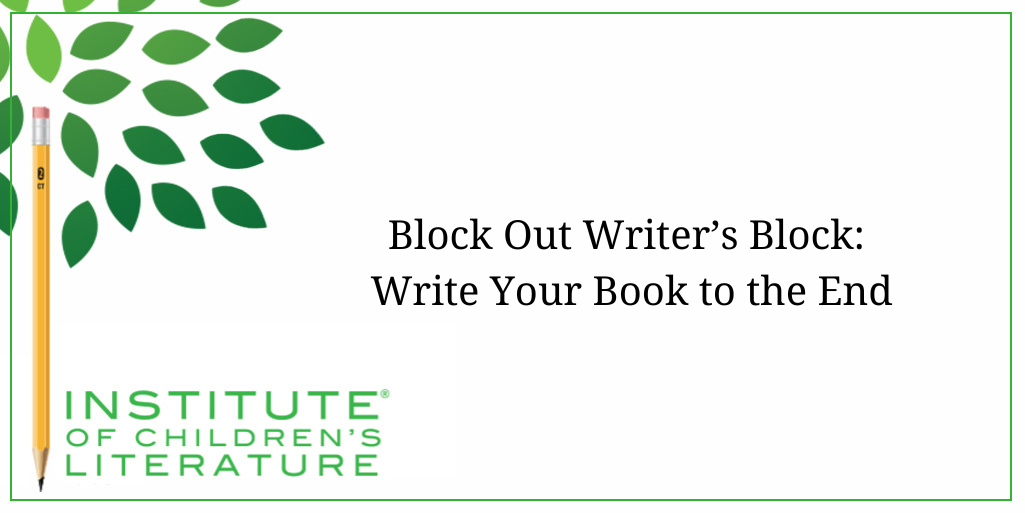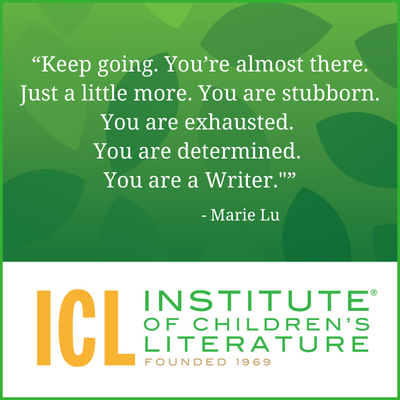
5 Ways Writers Can Prep for 2025 Goal Setting
Before we roll on to the new writing year, let’s harness our optimism for the blank slate before us and prepare for our 2025 Goal Setting just for writers.

The number of writers who start a book in November far exceeds the number of writers who finish the book they started. Honestly, this is true for every month, but especially true now because the excitement of taking part of National Novel Writers Month often isn’t quite enough to work to the end of the book. But you can’t sell what you don’t finish, so it’s important to push through those roadblocks that stand in the way of the finish line.
One of the biggest challenges to writing your book to the end is writer’s block. When writer’s block hits, it’s easy to feel completely helpless. You know you want to keep writing, but you simply cannot seem to produce, move forward, or gain any kind of traction on the story. Writer’s block in some form or other happens to most writers. But the kind of writer’s block that hits in the middle of a book often grows out of weaknesses in preparation before beginning the writing. And this is especially true when it comes to characterization.

Sometimes this works, but novels can be filled with people, and trying to get your writing creativity to build so many people on the fly can result in blank spots where you simply don’t know what that character would do in a given situation. Or you may begin to disbelieve in a character if you’ve been assigning them actions for the sake of the plot instead of the actions coming out of who the characters are and what they want.
As a result, one excellent way to break through writer’s block is to stop writing (for a moment) and instead begin character building. I find it useful to create notebooks for my novels with sections for each person. I’ll sometimes try out writing exercises with the characters. Here are a few I find helpful:
These exercises may seem silly, but as I separate the characters from the story I’m trying to build, I find myself knowing these people better, and thus when I get back to my novel writing, I often find I know exactly what needs to come next.
Movies are often filmed out of the order of the story. Actors have to work with characters even when they haven’t played the scenes that would reveal character change. Writers can do the same. If you’re stuck on a scene because you’re not sure what needs to go into it, you can jump over it and begin working on a later scene.
I’ve done this many times when a scene simply refused to jell for me. And I often discover as I write the later scenes, that the one I thought I needed was not the right scene for the story at all. I’ll end up connecting those two ends of my novel in a whole new way that is smoother and more believable. So don’t feel you must write the novel in the order you intend the scenes to be presented to the reader. Jumping over a problem may be exactly the right way to find the route through.
Unfortunately, the blocks that get in the way of writing don’t always come from us, or not from us directly. With a high-pressure challenge like writing a novel in a month, we have to push aside all the other tasks that we’d be doing if we weren’t trying to write a novel. Early in the month, that can feel completely doable. After all, at the beginning of the month, we’ve only set aside a few things.
But as the month and the novel passes, those competing demands can become really demanding. Sometimes they become demanding through things we cannot control, and we really do have to stop and give a little time to other activities. But sometimes the demands distract us only because we let them.
Writers often have a hard time giving themself permission to get the job done. We can value our writing time for a while, but then guilt creeps in. Is it really okay that we’re taking this time? Is it fair? Is it reasonable? These kinds of doubts not only run the risk of inviting writer’s block in, but they also give all our life demands more emotional weight, making it harder to hold them off for the time necessary to finish the book.
The answer is to either renew your contract with yourself, the one you made at the beginning of the month when you determined to write a novel in November. Or, if you find the contract is simply too constrictive and the other things in your life must get some time, ease the deadline a bit. Maybe you won’t get the rough draft completed until mid-December.
The real success of NaNoWriMo is completing a novel, even if you don’t complete it in the month. This second option only works if you take your new deadline seriously and you don’t extend it past the time necessary. This is only a compromise, not a surrender. It’s a way of keeping balance, not inviting procrastination in. Only you can know whether you’re making a concession that is fair to you as much as it is to everyone else.
Don’t lose sight of the fact that novels do have an end. The challenge doesn’t last forever. You don’t have to do endless battle with this rough draft. You don’t have to ask people to be patient with you forever. This is only for now. And by this point in your life, you’ve pushed through a lot of challenges. We all have. This is simply another one, but it’s a valuable one. It’s one that moves you closer to a dream you have. It’s one that will let you turn an idea in your head into a story that can delight and challenge others. It’s worth the fight, and it’s a fight you can win. It’s not a war, just a battle.
So, shake off the weariness, jump over the hurdles, and keep fighting. The only way to be a winner is to refuse to lose. You can do it.
With over 100 books in publication, Jan Fields writes both chapter books for children and mystery novels for adults. She’s also known for a variety of experiences teaching writing, from one session SCBWI events to lengthier Highlights Foundation workshops to these blog posts for the Institute of Children’s Literature. As a former ICL instructor, Jan enjoys equipping writers for success in whatever way she can.

Before we roll on to the new writing year, let’s harness our optimism for the blank slate before us and prepare for our 2025 Goal Setting just for writers.

Writers can be thin-skinned when it comes to getting feedback on their work. Let’s look at 4 ways to positively deal with constructive criticism!

Rejection is part of the territory when it comes to being a writer. Today we offer reflection for writers to help redirect your efforts after a rejection.
1000 N. West Street #1200, Wilmington, DE 19801
© 2024 Direct Learning Systems, Inc. All rights reserved.
1000 N. West Street #1200, Wilmington, DE 19801
© 2024 Direct Learning Systems, Inc. All rights reserved.
1000 N. West Street #1200, Wilmington, DE 19801
© 2024 Direct Learning Systems, Inc. All rights reserved.
1000 N. West Street #1200, Wilmington, DE 19801
© 2025 Direct Learning Systems, Inc. All rights reserved.
1000 N. West Street #1200, Wilmington, DE 19801
©2025 Direct Learning Systems, Inc. All rights reserved. Privacy Policy.
3 Comments